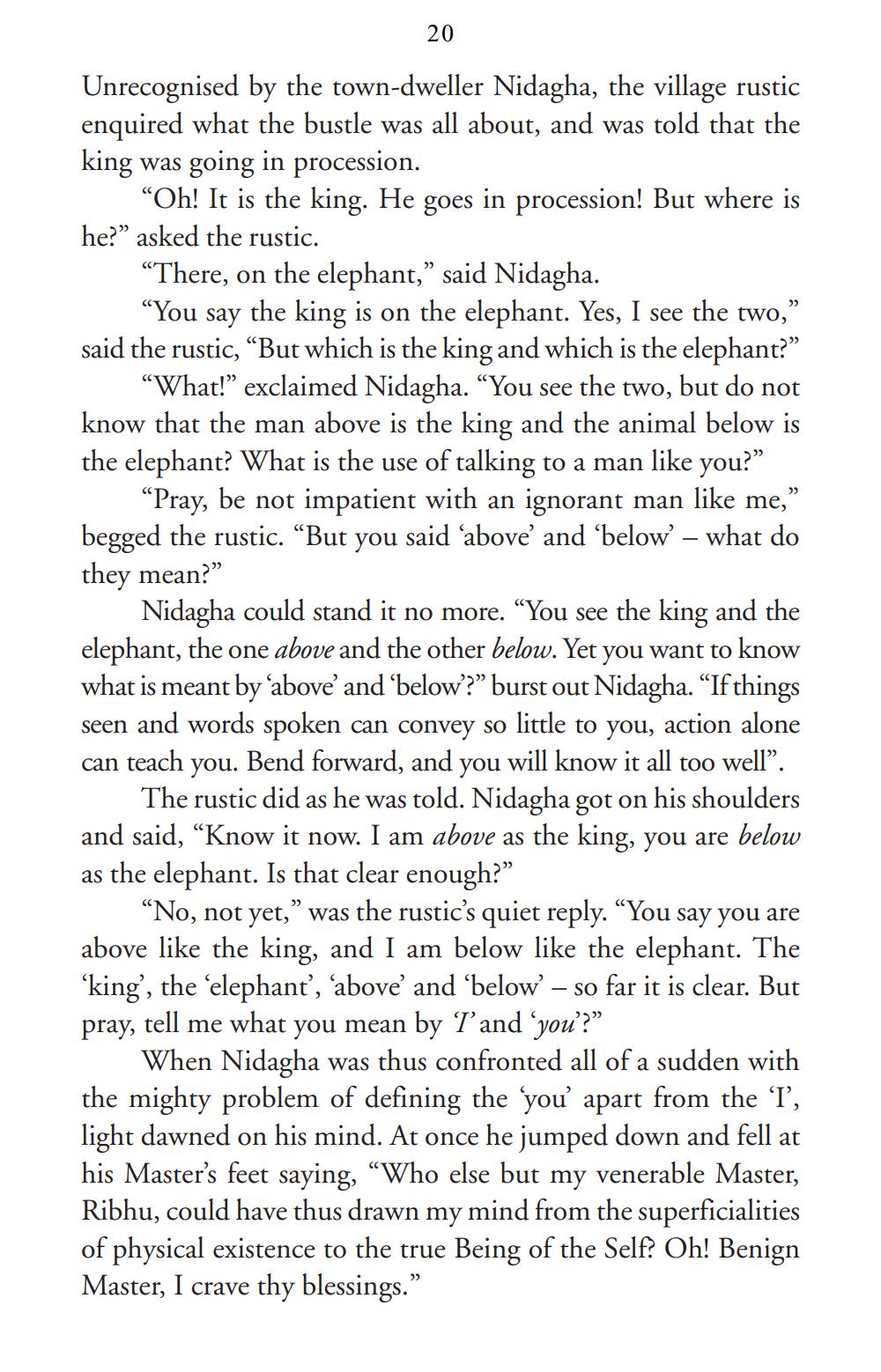________________
Unrecognised by the town-dweller Nidagha, the village rustic enquired what the bustle was all about, and was told that the king was going in procession.
"Oh! It is the king. He goes in procession! But where is he?" asked the rustic.
"There, on the elephant,” said Nidagha.
“You say the king is on the elephant. Yes, I see the two,” said the rustic, “But which is the king and which is the elephant?”
“What!” exclaimed Nidagha. “You see the two, but do not know that the man above is the king and the animal below is the elephant? What is the use of talking to a man like you?"
“Pray, be not impatient with an ignorant man like me,” begged the rustic. “But you said above' and 'belowo – what do they mean?”
Nidagha could stand it no more. “You see the king and the elephant, the one above and the other below. Yet you want to know what is meant by ‘above' and 'below?" burst out Nidagha. “If things seen and words spoken can convey so little to you, action alone can teach you. Bend forward, and you will know it all too well”.
The rustic did as he was told. Nidagha got on his shoulders and said, “Know it now. I am above as the king, you are below as the elephant. Is that clear enough?”
“No, not yet,” was the rustic's quiet reply. “You say you are above like the king, and I am below like the elephant. The ‘king', the ‘elephant', 'above' and 'below' – so far it is clear. But pray, tell me what you mean by I' and 'you'?"
When Nidagha was thus confronted all of a sudden with the mighty problem of defining the 'you' apart from the I, light dawned on his mind. At once he jumped down and fell at his Master's feet saying, “Who else but my venerable Master, Ribhu, could have thus drawn my mind from the superficialities of physical existence to the true Being of the Self? Oh! Benign Master, I crave thy blessings.”




